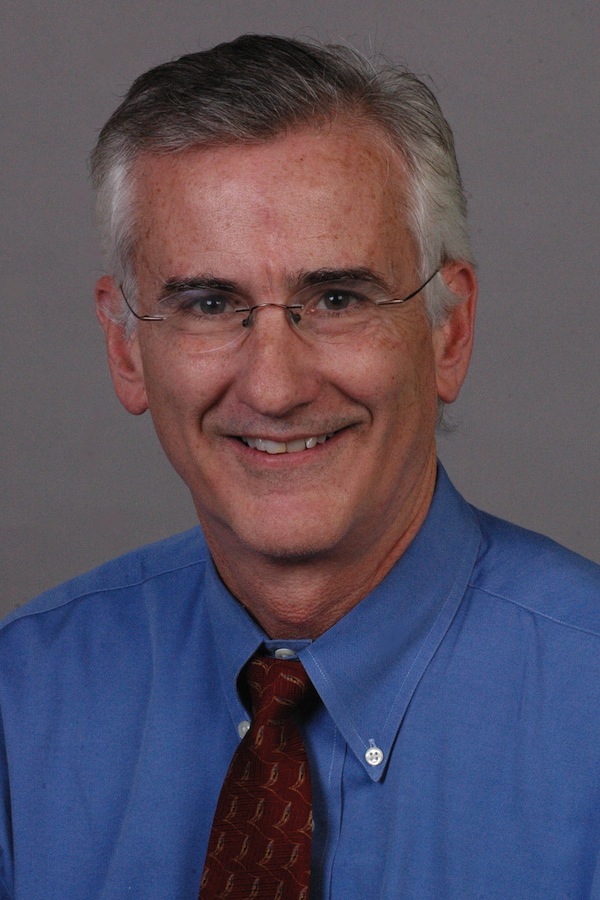John Morris, MD, is the Palliative Care Medical Director at Four Seasons and a member of the Western Carolina Medical Society. He is passionate about helping people through the stress of serious illness and guiding people through the complex medical system.
To protect doctor-patient confidentiality, the pseudonym Mrs. Smith has been used in this article.
Mrs. Smith (see above) is the proud 81-year-old matriarch of a wonderful family. Sadly, she has been suffering from heart problems that brought her to Mission Hospital for the third time in three months. Her team of medical consultants is treating her with the latest medications and devices, but her heart continues to weaken. Her physician suggests a palliative care consult.
What is palliative care?
Palliative care is specialized medical care for people with serious illnesses. This type of care is focused on providing patients with relief from the symptoms, pain, and stress of a serious illness – whatever the diagnosis may be. The ultimate goal is to improve quality of life for both the patient and the family. Palliative care is provided by a team of doctors, nurses, nurse practitioners, physician assistants, social workers, chaplains and other specialists who work with a patient’s existing doctors to provide an extra layer of support. Palliative care helps patients and their families navigate the complex medical system and provides guidance with the many decisions that have to be made. Unlike hospice, which provides holistic care for people who are terminally ill, palliative care is appropriate at any age and at any stage of a serious illness and can be provided alongside curative treatment.
After receiving the consult request from Smith’s physician, I sat down to talk with this distinguished woman and her three daughters. I listened as they told stories of her strength and character. I was saddened as they described how her recent heart problems have left her weak and unable to enjoy her loves of cooking and flower gardening. The daughters expressed their desire to care for their mother at home, but shared how they struggle to provide the best care for her while working and taking care of their own families. Ultimately, Smith and her daughters decided that palliative care was the right choice.
Smith’s palliative care team began facilitating discussions that are often difficult for family members to initiate. Would Mrs. Smith want to be placed on life support machines? Would she be willing to go to a nursing home for rehabilitation if it could make her stronger? Does she want to continue to come back and forth to the hospital or would she prefer comfort care at home?
As her palliative care physician, I worked with Smiths’ other doctors to make sure she had the medications she needed for pain, shortness of breath, and fatigue. The palliative care nurse spent time with the daughters guiding them in how to take the best care of their mother at home. The social worker met with the family to discuss community resources available to them in providing home care, and also began counseling to help the family deal with the stress and feelings of guilt that naturally arise when managing serious illness. The chaplain met frequently to pray with Mrs. Smith as her faith is an important source of comfort to her.
She improved during her hospital stay. She was discharged from the hospital and will be followed by her palliative care nurse practitioner who will continue the work begun by the team. Our hope is that Mrs. Smith continues to improve under the care of her physicians, daughters and palliative care team. We want her to live each day with the best quality possible. Mrs. Smith and her daughters now know that they are not alone and have the support they need no matter what happens.
Palliative care is a wonderful extra layer of support for people and families stressed by serious illness. We are blessed in WNC to have some of the best and most innovative palliative care programs in the country.




Before you comment
The comments section is here to provide a platform for civil dialogue on the issues we face together as a local community. Xpress is committed to offering this platform for all voices, but when the tone of the discussion gets nasty or strays off topic, we believe many people choose not to participate. Xpress editors are determined to moderate comments to ensure a constructive interchange is maintained. All comments judged not to be in keeping with the spirit of civil discourse will be removed and repeat violators will be banned. See here for our terms of service. Thank you for being part of this effort to promote respectful discussion.